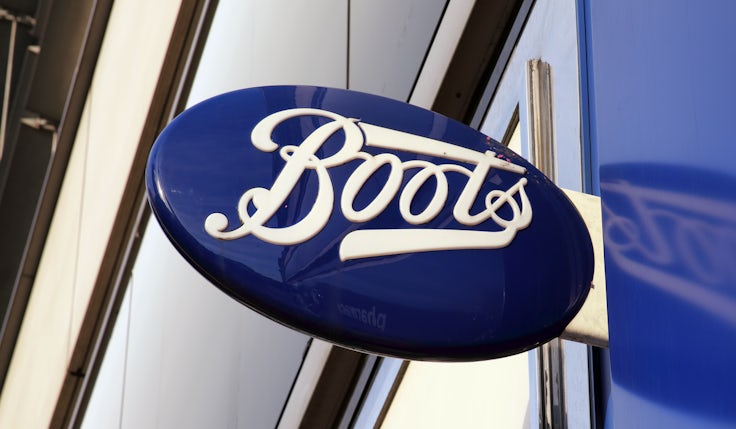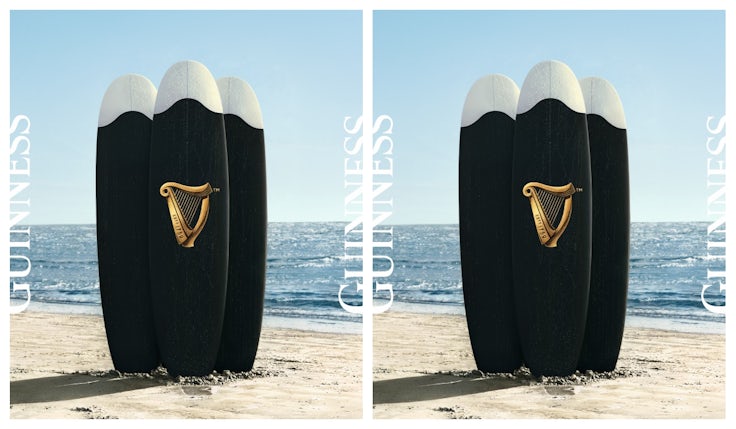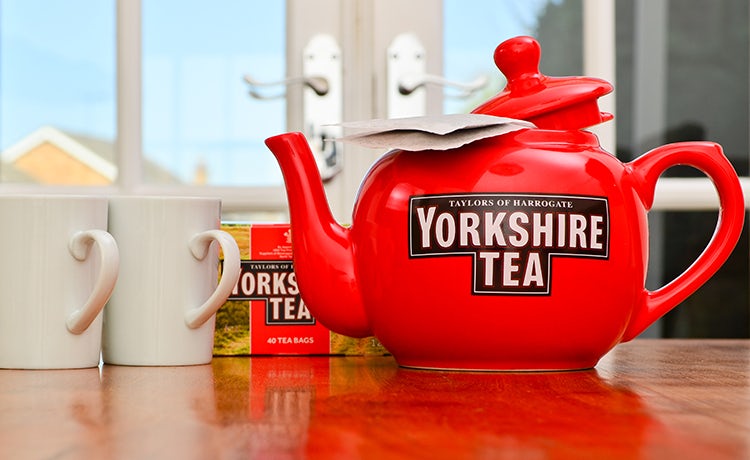Marketing Week Awards 2023 Brand of the Year shortlist revealed
Five brands have been shortlisted for Brand of the Year at the 2023 Marketing Week Awards, with the winner to be announced in November.
 Boots, Cadbury, Guinness, Sage and Yorkshire Tea have been shortlisted for the Marketing Week Awards Brand of the Year for 2023.
Boots, Cadbury, Guinness, Sage and Yorkshire Tea have been shortlisted for the Marketing Week Awards Brand of the Year for 2023.
These five brands were chosen from a long list put together by the Marketing Week editorial team. Brands were selected based on performance, agility, marketing strategy and innovation over the past year.
The winner will be chosen based on a combination of a public vote and the views of a panel of senior marketing figures.
Russell Parsons, editor-in-chief of Marketing Week and the Festival of Marketing, says: “Marketing Week is nothing without brands. Their failings are featured, yes, but as importantly so are their successes. Brand of the Year is all about excellence. And our shortlist has that in abundance. Congratulations to all those shortlisted. And I look forward to revealing the winner in November.”
The winner will be revealed at a ceremony at The Londoner in Central London on 1 November.
Click here to vote for your Brand of the Year
The shortlist for Brand of the Year 2023
Boots
 Boots is a brand going from strength to strength, since embarking on its mission to bolster the business and drive reappraisal. The retailer started the year with its “biggest ever” investment in price at a time when consumers were feeling particularly squeezed. It expanded its Boots Everyday essentials range, leading to sales growth of 35% for these products in the first quarter alone.
Boots is a brand going from strength to strength, since embarking on its mission to bolster the business and drive reappraisal. The retailer started the year with its “biggest ever” investment in price at a time when consumers were feeling particularly squeezed. It expanded its Boots Everyday essentials range, leading to sales growth of 35% for these products in the first quarter alone.
At the same time, Boots revamped its Advantage Card loyalty scheme, with the introduction of exclusive discounts for members to offer customers more immediate value at a time when it matters most. Advantage Card members also now receive 10% off 6,000 own-brand products, and while it reduced the number of points members can earn from four to three per £1, it still remains one of the most generous points schemes on the high street, according to a Which? study.
Boots launched a major campaign in May to promote its value proposition, not a time of year the retailer normally advertises in this way, but thanks to the work CMO Pete Markey and his team have been doing to prove marketing’s value over the past few years, it was able to secure additional investment. “This year we’re doing lots of new things we haven’t done before, because we’ve been able to prove that marketing is paying back,” Markey told Marketing Week.
Thanks to this work on proving effectiveness, the marketing team has been able to continually secure higher budgets. Boots unveiled its biggest ever healthcare campaign at the start of 2023, and last year launched the first TV campaign for Advantage Card in its 25-year history. Markey said this generated an ROI of £2 for every £1 spent and led to an additional 1.1 million members signing up.
Boots’s 2022 Christmas campaign ‘Joy for All’ was also a winner, achieving an ‘exceptional’ 5.2-star rating according to effectiveness measurement firm System1. It followed the success of its previous Christmas campaign ‘Bags of Joy’, which delivered an ROI of £4 for every £1 spent, while 45% of those who shopped with the retailer hadn’t done so the previous year.
Online was a big focus for Christmas 2022, leading to Boots.com becoming one of the UK’s top 10 most-visited retail sites on Black Friday. The website accounted for 18% of total sales in the quarter to 30 November, compared to 9% pre-pandemic.
Elsewhere Boots has been raising its profile through a number of major sponsorships. It signed a multi-year deal with Heart Breakfast and extended its sponsorship of ITV’s Love Island for a third year, after seeing a 50% sales boost on average for the products featured in 2022.
The retailer has had a strong start to 2023 too. Boots retail sales increased by 13.4% in its most recent results for the third quarter, leading to its ninth consecutive quarter of market share growth.
All indication that Markey’s mission to drive reappraisal of the Boots brand is paying off.
Click here to vote for your Brand of the Year
Cadbury Dairy Milk

Perhaps not since its noughties advertising heyday has the Cadbury brand been in such a strong position, earning plaudits for its innovation, the strength of its purpose and commitment to long-term brand building.
Indeed, the brand’s ‘There’s a Glass and a Half in Everyone’ platform, which first launched in 2018, continues to go from strength to strength.
The campaign has given the brand a new lease of life and been credited with increasing its annual revenue by £261m. Annual sales have risen by 22% since it launched, more than double the original 9% target. It was much needed because the brand had been suffering steady declines in the run-up to 2018, while its IPA Effectiveness Award submission from last year shows 2 million British households had stopped buying Cadbury Dairy Milk in the two years before the change in direction.
Tapping into the brand’s purpose, which is generosity – in line with its Quaker heritage – has particularly resonated with consumers and allowed Cadbury to regain momentum.
In May, Mondelez senior marketing director Dave Clements explained how far-reaching the significance of the Glass and a Half platform is. “For me it is far greater than just a campaign, it’s literally everything that we do,” he said.
Meanwhile, Cadbury’s 2022 Christmas campaign ‘Secret Santa’ was revealed as the festive ad most likely to prove effective in the long term, according to analysis by Kantar. The brand’s Secret Santa postal service has been a staple in Cadbury’s creative calendar (as well as the brand being a staple in consumers’ advent calendars) for five years on the bounce.
Even in the face of the introduction of high fat, salt and sugar (HFSS) restrictions in the UK, parent company Mondelez hasn’t witnessed a significant impact on sales.
In fact, 2022 was a “record year” for Mondelez, with net revenues increasing 9.7% to $31.5bn (£25.6bn), and gross profit up by $58m (£47.1m) to $11.3bn (£9.2bn). The business continues to grow, with its half-year revenues growing 17.5%.
Click here to vote for your Brand of the Year
Guinness

Guinness’s success this year has been black and white for all to see. Indeed, owner Diageo labelled its 2023 fiscal year, which ended in June, as the Irish stout’s “best year” since it began tracking the brand, with more sales for the brand than ever before.
Founded in the 18th century, the brand has consistently proved it can maintain its distinctiveness and sense of heritage, while staying relevant to today’s consumers.
This year saw the Irish beer grab the title of the UK’s most popular pint, as measured by value sales in the on-trade.
In February this year, Marketing Week columnist Mark Ritson outlined how Guinness had achieved this success, suggesting the brand is an example of “fundamental marketing done brilliantly”. He championed Guinness’s use of key brand assets, social listening and ability to learn from each year passed to achieve marketing excellence.
Guinness is synonymous with pint glasses and pubs, yet in its home market it showed it has appeal to consumers as an at-home beverage too, despite its premium positioning and consumers struggling with the cost of living. The brand became the best-selling beer by volume in the off-trade on the island of Ireland over the past 12 months.
Diageo reported the brand grew in all its regions during its most recent fiscal year, growing by double-digits in Europe, Latin America and the Caribbean, and Asia Pacific. Overall, the brand grew at a “remarkable” 16% over the 12 months to June.
Over the past few years, Guinness has coupled doubling down on its distinctive brand assets with select innovation. Guinness Nitrosurge, launched earlier this year, enables consumers to have a draught pint experience at home. The brand has also expertly entered into the growing no and low alcohol sector, continuing to expand its Guinness 0.0 proposition. The four-pack was recently the best-selling non‐alcoholic item in the British off-trade by value and volume, according to Diageo.
Going forward, Diageo has committed to continuing to grow penetration for Guinness through innovation and consistent marketing spend.
As head of Guinness GB Neil Shah told Marketing Week earlier this year: “It’s not about ripping up the rulebook, it’s about building on it.”
Click here to vote for your Brand of the Year
Sage

In a year where brands have been under more pressure than perhaps ever to drive short-term results, Sage stands out as a champion of long-term brand building and the results it can offer to businesses, a particular rarity for a B2B business.
In 2022, Sage spent an additional £50m on marketing, in a year where it refreshed its brand and launched its first-ever purpose statement, ‘To knock down barriers so everyone can thrive’. More recently, the business credited its marketing investment in helping drive double-digit growth – its recent half-year financial results for the six months to 31 March saw total revenue hit £1.87bn, up 10% year on year.
In the same period, marketing spend continued to increase, up to £411m from £395m a year earlier. CEO Steve Hare has talked about the merits of combining efficient, digital marketing with long-term “global integrated campaigns”, which the business is doing more now on a global basis.
It’s clear the business has invested heavily, and is reaping the rewards. Indeed, while Sage recognised the huge importance of its digital presence, it was also the second biggest B2B brand spender on linear TV in 2022 – it increased its investment in the channel by 39% to £13.4m, according to Thinkbox.
Above all else, Sage is a brand that leans on the human in business. As CMO Cath Keers told Marketing Week last year, when revealing the refresh: “For me, it’s actually about human to human. People buy from people.”
It’s clear in the intervening months since the refresh and subsequent TV, outdoor and digital campaign, Sage is continuing to lead the charge as a stellar example of everything a great marketing organisation should be, not just as motivation for other B2B brands, but all businesses.
Click here to vote for your Brand of the Year
Yorkshire Tea
 The black tea business category has not been without its challenges in the past couple of years. The soaring costs of raw materials and increased competition from private label makes the challenge pronounced.
The black tea business category has not been without its challenges in the past couple of years. The soaring costs of raw materials and increased competition from private label makes the challenge pronounced.
Impressive then, that Yorkshire Tea has not only retained the category-leading position it fought so hard to achieve, but it has also done so by maintaining its premium price.
Despite a drop in operating profit for its last financial year at parent company Bettys and Taylors Group, Yorkshire Tea sales continued to grow. As did its share of the black tea market – up to an impressive 34%.
Its success has been hard fought. As recently as 2017, it was just the third biggest brand in the black tea market by volume with just 21.7% of the market.
The catalyst for change was the introduction of the ‘Where Everything Is Done Proper’ brand platform.
Created in partnership with Lucky Generals, the platform aims to position the brand as one that does everything in the best possible way. One objective was awareness. By using Yorkshire-born celebrities such as Sir Patrick Stewart it is hoped consumers would be re-acquainted with or re-introduced to the brand.
It was also designed to help the brand maintain its price. Yorkshire Tea is more expensive than rivals and own-brand competitors. The brand platform emphasises Yorkshire Tea is a “proper” brew, intended to convey the value of the brand, particularly amid the cost of living crisis when consumers are seeking cheaper alternatives.
Speaking to Marketing Week last year, marketing director Dom Dwight said the objective, in straightened times, is to “remind people that it’s worth paying a bit more for proper tea”. He told Marketing Week: “It doesn’t have to be too complicated. It can be as simple as saying, how grim is a bad cup of tea?”
It does appear the tactic is proving effective. According to data from Kantar Worldpanel, Yorkshire Tea enjoys a price premium versus other UK tea brands. Where the average price would be 100, the average retail pricing index for standard black tea shows Yorkshire Tea at an index of 144, showing it commands a price considerably higher than rivals PG Tips, at 97 and Tetley, at 76. In the face of pressure to promote heavily, it’s testament to the brand and price equity, the brand enjoys.
Elsewhere, the brand has set itself the challenge of growing the wider category. To this end, it has targeted younger consumers and diversified the brand’s media strategy. It has attracted praise for its tone of voice on social, notably a tongue-in-cheek ‘social distancing teapot’ ad in 2020. A recent full-length music video, featuring the story of ‘Skipton Alfie’, who brings a suitcase of Yorkshire Tea on holiday to Ibiza with him, has proven popular online.





